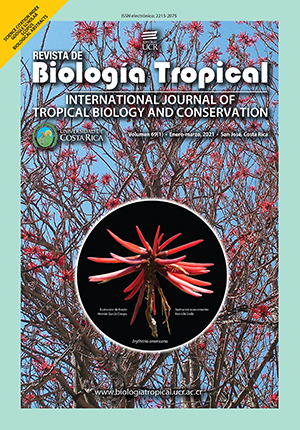Abstract
Introduction: The leaves of Senna alata from the Fabaceae family have been used in folk medicine for the cure of skin disease. In this study, we tested the extract and fractions on brine shrimp lethality test and antiproliferative activity on cancer and normal cell lines. Objective: In this study, we assessed the cytotoxicity of S. alata using brine shrimp test and two cell lines. Methods: The 80 % ethanolic leaf extract and its fractions were examined for possible cytotoxic effect using sulforhodamine B (SRB) cytotoxicity assay towards breast cancer (MCF-7), normal (MCF10A) cell lines, and brine shrimp lethality test (BSLT). Results: The brine shrimp lethality bioassay exhibits no cytotoxicity even at high concentration (5 000 µg/mL). The LC50 for dichloromethane, chloroform, butanol, and aqueous were > 1 000 µg/mL (non-toxic). The IC50 for in vitro SRB cytotoxicity against MCF-7 for n-hexane was 0.013 µg/mL, which was considered highly toxic, while dichloromethane and chloroform recorded at 47.11 and 57.61 µg/mL, respectively after 72 hours exposure time although there was no cytotoxicity found on the normal cell line. Conclusion: This study shows that S. alata crude ethanolic leaf extract and its fractions potentially contain significant bioactive compounds that are safe from adverse effects, which proves the therapeutic application of S. alata in traditional remedy.
Comments

This work is licensed under a Creative Commons Attribution 4.0 International License.
Copyright (c) 2021 Amir Modarresi Chahardehi, Hasni Arsad, Noor Zafirah Ismail, Vuanghao Lim







